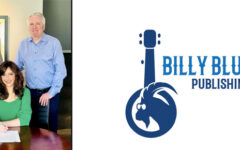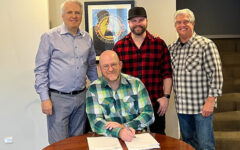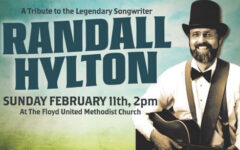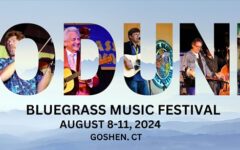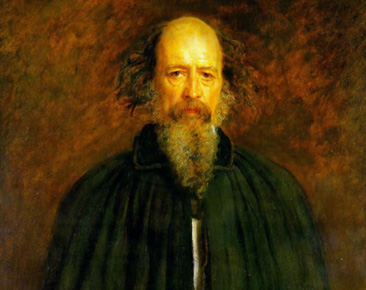
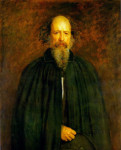 Alfred, Lord Tennyson wrote Crossing the Bar in 1889, three years before he died. The poem describes his placid and accepting attitude toward death. Although he followed this work with subsequent poems, he requested that Crossing the Bar appear as the final poem in all collections of his work.
Alfred, Lord Tennyson wrote Crossing the Bar in 1889, three years before he died. The poem describes his placid and accepting attitude toward death. Although he followed this work with subsequent poems, he requested that Crossing the Bar appear as the final poem in all collections of his work.
The English poet is often regarded as the chief representative of the Victorian age in poetry. Tennyson succeeded Wordsworth as Poet Laureate in 1850, being appointed by Queen Victoria and served 42 years. Tennyson’s works were melancholic and reflected the moral and intellectual values of his time.
The poem itself is a metaphor for death. ‘Crossing the Bar’ could be interpreted to mean “crossing the sandbar” out into sea, transitioning from life into death. The Pilot is a symbol for God. Tennyson wrote that “The Pilot has been on board all the while, but in the dark I have not seen him. [He is] that Divine and Unseen Who is always guiding us.”
Lead singer and fiddler Rani Arbo, while a member of Salamander Crossing, the New England bluegrass band, re-arranged the poem and set it to her own music. A recording of the song – made in 1998 – can be found on their album Bottleneck Dreams.
Salamander Crossing disbanded in 1999 but some of the original members (Rani Arbo and Andrew Kinsey) still perform under the name Rani Arbo and Daisy Mayhem. Their version of the song is on the 2012 CD Some Bright Morning.
The song itself is strangely beautiful in that even though it is a metaphor for death it isn’t especially sorrowful. There is a touch of reflectiveness present.
Rani Arbo had this to say about how the poem became a song …..
“Scott’s [1] grandmother, Elizabeth May, inspired this setting of Tennyson’s famous poem, which he wrote at age 81. The first words of the poem were the last words she spoke, at age 97, in her beloved home overlooking the Potomac River Valley.
I am overjoyed that this song has found its way to the hospice choir movement, thanks in part to Peter Amidon’s beautiful choral arrangement.”
[!] Scott Kessel, Rani Arbo’s partner, is the percussionist with Rani Arbo and Daisy Mayhem.
Crossing the Bar
Salamander Crossing
Words by Alfred Lord Tennyson
Music by Rani Arbo
© Jinn Mill Music / BMI 1998
Sunset and evening star,
And one clear call for me!
And may there be no moaning of the bar,
When I put out to sea,
When I put out to sea,
When I put out to sea,
And may there be no moaning of the bar,
When I put out to sea.
Twilight and evening bell,
And after that the dark!
And may there be no sadness of farewell;
When I embark;
When I embark,
When I embark,
And may there be no sadness of farewell;
When I embark.
But such a tide as moving seems asleep,
Too full for sound or/and foam,
When that which drew from out the boundless deep
Turns again home.
Turns again home,
Turns again home,
When that which drew from out the boundless deep
Turns again home.
For tho’ from out our bourne of Time and Place
The flood may bear me far,
I hope to see my Pilot face to face
When I have crossed the bar.
When I have crossed the bar,
When I have crossed the bar,
I hope to see my Pilot face to face
When I have crossed the bar.
When I have crossed the bar,
When I have crossed the bar,
I hope to see my Pilot face to face
When I have crossed the bar.
© Copyright reserved
Alfred Lord Tennyson
Sunset and evening star,
And one clear call for me!
And may there be no moaning of the bar,
When I put out to sea,
But such a tide as moving seems asleep,
Too full for sound and foam,
When that which drew from out the boundless deep
Turns again home.
Twilight and evening bell,
And after that the dark!
And may there be no sadness of farewell,
When I embark;
For tho’ from out our bourne of Time and Place
The flood may bear me far,
I hope to see my Pilot face to face
When I have crost the bar.

